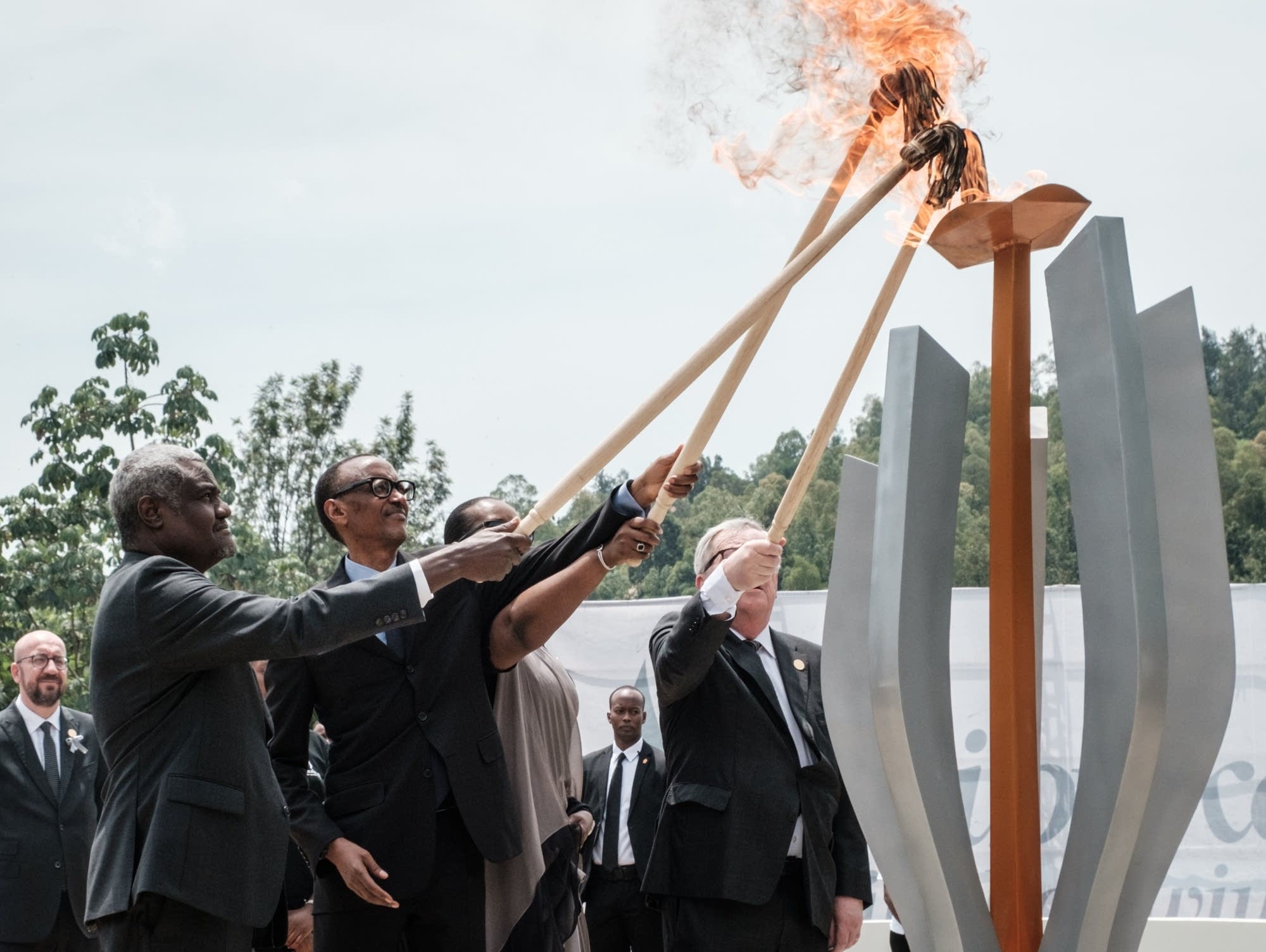
On April 7th, 2019, BBC News posted an article about the Rwanda Nation marking the 25th year anniversary since the mass slaughter.
Rwanda's president said the country had become "a family once again" while marking the 25th year since the genocide that killed 800,000 people. Paul Kagame, who led a rebel force that ended the slaughter, lit a remembrance flame in the capital Kigali. Rwandans will mourn for 100 days, the time it took in 1994 for about a tenth of the country to be massacred. Most of those who died were minority Tutsi and moderate Hutus, killed by ethnic Hutu extremists.
"In 1994, there was no hope, only darkness," Mr. Kagame told a crowd gathered at the Kigali Genocide Memorial, where more than 250,000 victims are thought to be buried. "Today, light radiates from this place. How did it happen? Rwanda became a family again."
How is Rwanda going to remember? The commemoration activities began with the flame-fighting ceremony at the memorial. The flame will burn for 100 days. The 61-year-old president, who has led the country since 2000, then delivered a speech at the Kigali Convention Centre. Mr. Kegame then led a vigil at the Amahoro National Stadium, which was used by United Nations officials to try to protect Tutsis during the killings. About 2,000 people marched together on a walk of remembrance from parliament to the stadium where candles were lit.
I believe that this event is a very good way of bringing their country together. Although it can be hard to bring up, I believe people have to acknowledge what happened in the past, instead of ignore it and push it aside. By acknowledging, Rwandans are able to accept what happened and use it as an excuse to better their country now, so it never happens again. Also, everyone is on the same page, which helps a community come together. I think it is sad that people will probably always remember Rwanda for the genocide that occurred, just like people will always remember the Pentagon as the 9/11 terrorist attacks. However, these events are what makes a community stronger because they have to rebuild and grow stronger, together.
ReplyDeleteI agree with Jennifer that it is important to acknowledge and accept the mistakes of the past. Turkey is a horrible example of what can happen if a country doesn’t do this. To this day, Turkey continues to deny that the Armenian genocide ever happened. Seeing the Armenian genocide go unrecognized and unpunished, the Nazis were emboldened to commit similar atrocities and even had a “success story” to model their practices after. If the Turks had recognized the atrocities that had taken place and took steps to prevent them from ever happening again, the Nazis wouldn’t have been so emboldened to commit similar atrocities.
ReplyDeleteI agree with all three of you in a way. I do believe that this was an important event and should not be taken lightly at all. It is a very difficult thing to bring up in conversations especially since no country tried to help in any way shape or form. they all sat on the outside looking in, just waiting for it to be over. I don't think that this will bring us closer however, maybe if we had decided to do something and help out with the situation at hand, then they might feel grateful, and that would bring everyone closer together, but I don't see how nobody doing anything to help for correct the situation brings our countries closer together. I do believe that after that and if we can acknowledge that we were in the wrong for not helping, then I do think we are headed in the right direction.
ReplyDelete